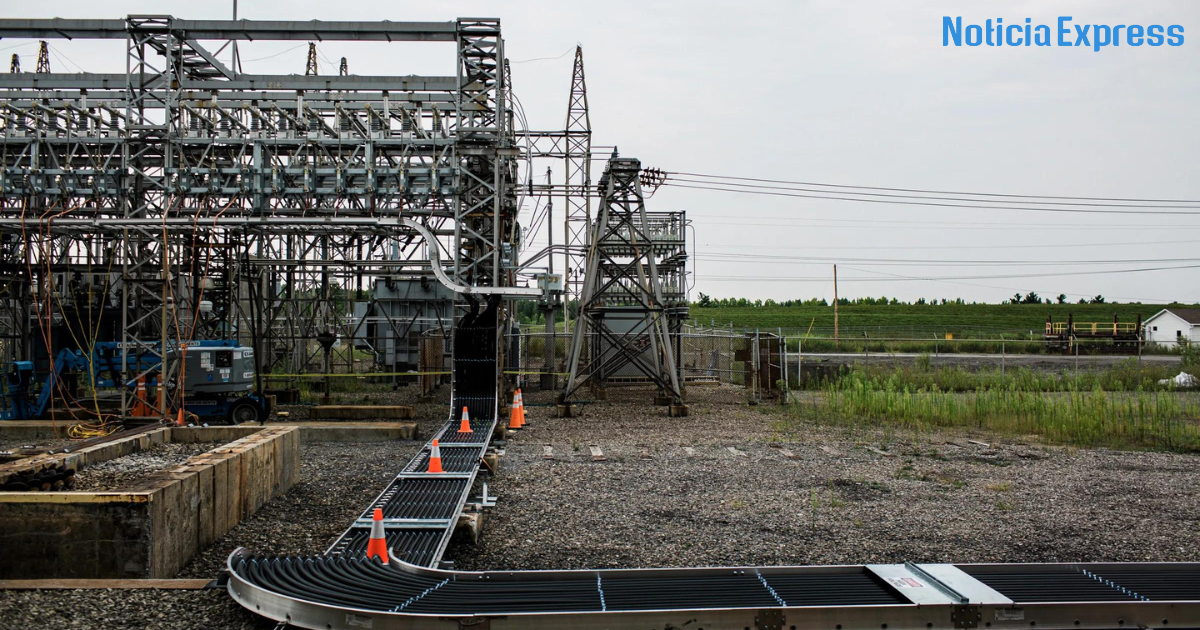On a hot July night, the cacophony emanating from thousands of computers engaged in Bitcoin mining shattered the tranquility. Nearby, Matt Brown, a member of the Arkansas legislature, observed the noise with a local magistrate. As they investigated complaints about the operation, a security guard at the mine visibly armed himself with an AR-15-style rifle stored in a car, signaling a strong stance, according to Mr. Brown.
The Bitcoin facility, situated 45 minutes north of Little Rock, is one of three in Arkansas facing contentious disputes with residents. These locals argue that the incessant noise generated by computers conducting trillions of calculations per second disrupts their lives, diminishes property values, and drives away wildlife.
Similar operations have proliferated across the United States, drawing criticism for their substantial energy consumption, often linked to the fossil fuel industry. Noise complaints are widespread, and while some elected officials like Mr. Brown express support for affected residents, a new state law has provided significant legal protection for Bitcoin miners.

The Arkansas Information Centers Act, commonly known as the “Right to Mine” law, shields Bitcoin miners from legal challenges from communities opposing their proximity. Enacted just eight days after introduction, the law was partially drafted by the Satoshi Action Fund, a nonprofit based in Mississippi, co-founded by someone associated with the Trump administration’s rollback of climate policies.
Dennis Porter, the fund’s CEO, celebrated Arkansas as the first state to pass the “Right to Mine” Bitcoin bill in both the House and Senate, posting on social media when the law passed in April.
A similar bill succeeded in Montana, and the fund aims to replicate this success in over a dozen other states. Bills aligned with the fund’s goals have been introduced in states such as Indiana, Missouri, Nebraska, and Virginia.
Initially established as the Energy 45 Fund five years ago, the group aimed to champion Trump’s energy and environmental agenda. Mandy Gunasekara, the founder, played a key role in decisions like withdrawing from the Paris climate accord and repealing the Clean Power Plan during her two years at the Environmental Protection Agency.
While lauded by the Bitcoin community for legislative efforts and its confrontational stance against industry critics, the fund has sparked division. Arry Yu, the executive director of the U.S. Blockchain Coalition, criticized the exploitation of Arkansas residents, emphasizing the need for a collaborative approach with communities.
The strife in Arkansas extends beyond noise complaints, raising concerns about connections to Chinese nationals. Operations are linked to a larger influx of Chinese ownership in the U.S., prompting a state investigation into potential violations of a law prohibiting businesses controlled by Chinese nationals from owning land.
Legal representatives of the operations disputed claims related to the security incident and maintained their legal right to conduct business. Despite attempts to build bipartisan support, the Satoshi fund has found success primarily in Republican-led states. In Arkansas, where the legislature is dominated by Republicans, conservative voices are now leading calls to repeal the law.
Residents affected by the Bitcoin mine near Greenbrier have filed a lawsuit against the operators, blaming health issues and property value depreciation on the operation. The lawsuit faces resistance from the mine’s legal team, citing the Right to Mine law among other arguments.
Since the law’s enactment, 49 of Arkansas’s 76 counties have implemented noise level ordinances at data centers, including cryptocurrency mining operations. However, the legality of these ordinances and the challenge for local governments to regulate the industry have become central issues in the conflict between residents and Bitcoin operators.
As the debate intensifies, some lawmakers who initially supported the law have reconsidered their stance. Representative Jeremiah Moore, a Republican, expressed regret for not fully understanding the nature of crypto mines, leading him to join others in proposing a statewide ban on industrial-level cryptocurrency mining.
Senator Joshua Bryant, a Republican co-sponsor of the pro-mining legislation, defended the law as protecting the property rights of Bitcoin miners. However, he acknowledged exploring the possibility of a statewide noise ordinance to address potential health and safety concerns for residents.
Cryptic Farms, a Bitcoin mining company supporting the legislation, acknowledged that the law may have been exploited by “bad actors” but emphasized the unforeseen consequences. Despite efforts to collaborate with residents, some lawmakers and industry figures acknowledge the need for better regulation and a more comprehensive understanding of the impact of crypto mining on local communities.
The Satoshi Action Fund’s unconventional history, from its origins supporting Trump’s agenda to its shift towards Bitcoin advocacy, has fueled skepticism. Mandy Gunasekara, the co-founder, faced controversy for her actions while working for the EPA and later for her disqualification in an election due to residency issues.
The fund’s transition to promoting Bitcoin mining has raised questions about its motives. While it garners support within conservative circles, there are critics both within and outside the Bitcoin community who question its aggressive approach and call for a more inclusive dialogue about the impact of crypto mining on various communities.
As the legal battles unfold and the debate over cryptocurrency mining continues, affected residents like Gladys Anderson in Greenbrier are grappling with the mental, emotional, and physical toll of living near a Bitcoin mine. The community is divided, with some residents feeling betrayed by lawmakers who supported the Right to Mine law without fully understanding its consequences.
The situation in Arkansas reflects broader disagreements across the U.S. concerning the expansion of Bitcoin mining. Environmental activists advocate for federal regulation due to the industry’s energy consumption and pollution, while mining proponents argue that these operations contribute to stabilizing electrical grids and creating jobs in rural areas.
The debate underscores the complex intersection of economic interests, environmental concerns, and community impacts as Bitcoin mining becomes increasingly prominent across the country. As states grapple with regulatory frameworks, the outcomes in places like Arkansas may shape future approaches to balancing the interests of the cryptocurrency industry and affected communities.









